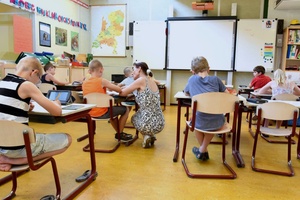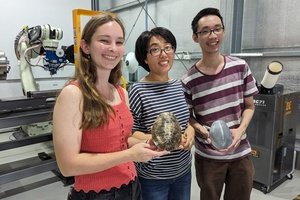The skills of phonemic awareness, phonics, fluency, vocabulary and comprehension support children in the progress as readers. They become more capable and confident as independent readers, and become active participants in their own reading journey.
Sitting alongside the evidence which tells us how to teach reading is another vital part of the reading puzzle – the reasons why children and young people learn to read, and continue to do so as they get older.
Just as every class is filled with unique individuals, so too is every class brimming with multiple reasons to read! Sharing and celebrating these reasons can help children remain motivated and interested in reading in the longer term, as they move into secondary school and beyond into the adult world.
Personal independence
The wider community can be a very text and symbol heavy visual environment! Take a closer look the next time you visit a shopping centre, explore a park, catch a train or bus, go to the cinema, navigate with a phone or check out a gallery.
Being confident in applying reading skills in a community setting can help students become confident in engaging in activities, using public transport or carrying out the activities of daily living.
Young people who know they understand the combined meaning of written text and symbol based communication are able to operate with confidence in the community. They are able to travel widely and know they can solve problems, find the people and places they want and explore independently.
Work-related skills
Many workplaces use forms, policies, standard operating procedures, performance guides and safety documents to guide workplace tasks and performance. There is often a focus on technical vocabulary which is related to industries or specific tasks and job roles.
Understanding the vocabulary and having mastery of the reading sub-skills can enhance the safety of young workers and set them up for long-term success at work.
Knowing how to comprehend important workplace documents such as meeting minutes, reports and rosters makes sure young people can complete their own work tasks and understand how their role relates to the work of others.
They can understand their own rights and responsibilities at work and know what to do to seek advice, respond to an emergency or follow instructions to complete a task.
Further study
If students choose to move into further study, there can be a greater assumption that key reading skills have been obtained in earlier life and the support structures available are sometimes less obvious.
Being able to read lecture notes and slideshows, participate in a group online chat group or communicate with a tutor all help older students get the most out of their further studies.
Of course, there is always reading and learning support available to students who need it in a further study environment, and this can help students to access course information and continue to develop effective personal reading strategies.
Shared meaning
The stories of many cultures and countries share meaning across generations and groups of people. Stories share ideas, memories, experiences, language and important ideas.
They give a sense of belonging and community, and help people understand and learn about new people, places and ideas. While some stories are oral, others are written and can be shared in many settings, including school and community libraries, family bookshelves and classroom reading groups.
Finding great stories about people and places can foster a greater understanding of the world for children and young adults alike.
New ideas
In Australia, there is a strong focus on children being able to access a wide range of reading content that is appropriate for their age and stage of development. Classroom and community libraries, shared reading groups and bookstores all provide access to many different authors, genres and styles of writing.
This ready access to reading material makes it easier for children to discover the authors and creators who resonate with them, so they can seek them out for their own personal reading.
While it is clearly important to keep an eye on the reading choices children make particularly when they are very young, it is also critical to provide them with a very wide range of options from which to make their choice.
Encouraging independent reading time purely for enjoyment allows children to focus on their own choices about authors, genres and styles and find their own best fits for reading.














